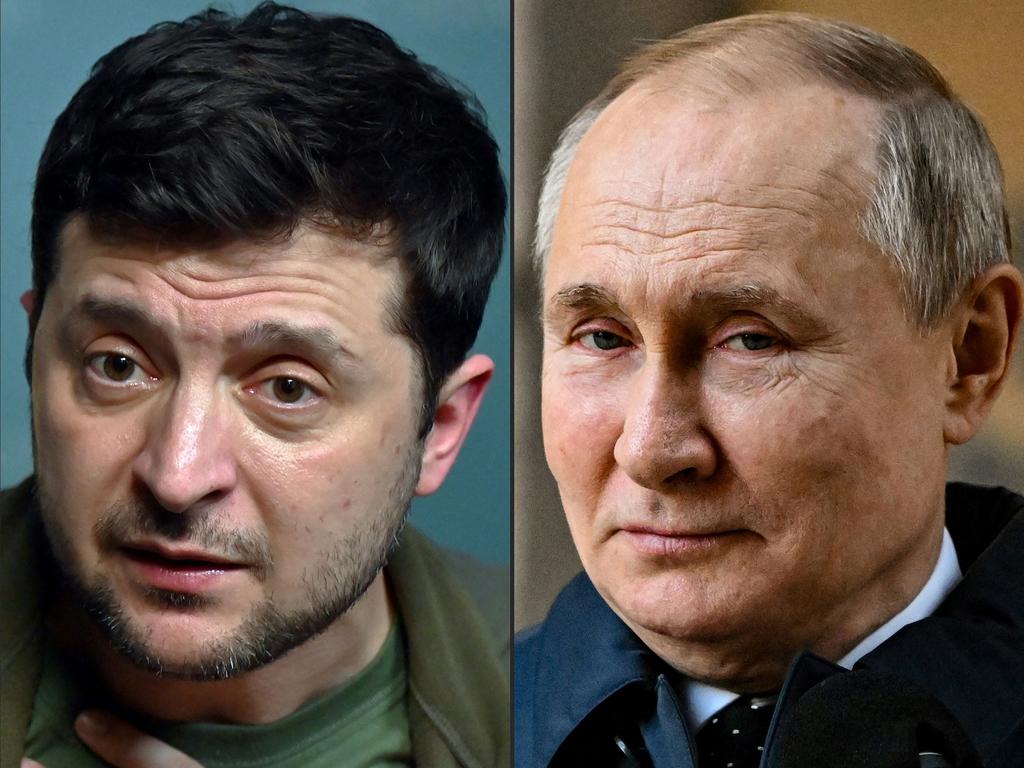Ukraine: Dark times call for plain speaking
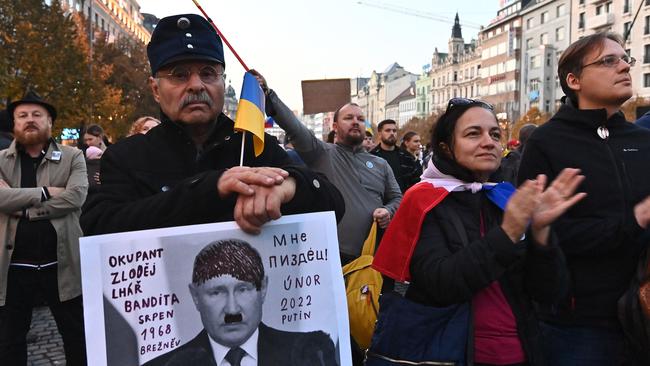
That thing about never meeting your heroes is mostly nonsense. I blame Proust’s A La Recherche du Temps Perdu (a book more quoted from than read), where the line appears, apparently. But genius does not always stand on feet of clay. Journalism has put me in the same room as Nelson Mandela, Dame Janet Baker, Muhammad Ali and the great astronomer Lord Rees, each of them peerless in their field and each blessed with an abundance of charisma, intellect and grace.
Last Thursday, as chairman of the global freedom of expression campaign Index on Censorship, I had the privilege of spending an evening in the company of Ukraine’s most celebrated author, Andrey Kurkov, a writer’s writer, who received our trustees’ award. The surrealist humour in his 19 novels, which include titles such as Adventures of Baby Vacuum Cleaner Gosha, has attracted admirers all over the globe.
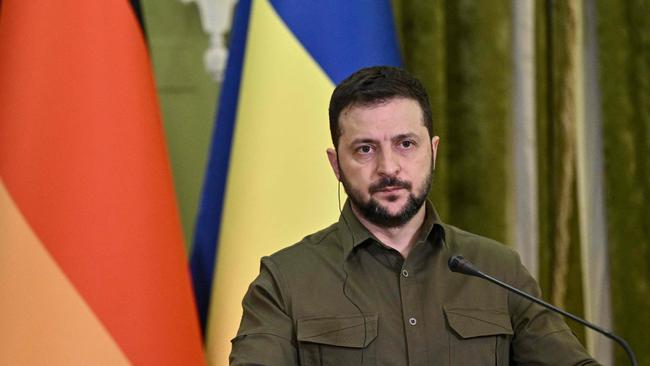
Over the past year, he and his family have remained steadfastly settled in Kyiv, and his writings in defence of Ukraine have been excoriating. In Index’s quarterly magazine, he eloquently listed the shattering trail of cultural destruction wrought by Russian bombs on Ukrainian museums, concert halls and universities. His acceptance speech on Thursday was a masterpiece of stoicism, wit and acid contempt for Vladimir Putin.
The confrontation between Kurkov and the Kremlin vividly demonstrates where limitations on free speech can lead. Ludicrously, Putin poses as a victim of discrimination, parroting the complaint of some in this country that writers like Kurkov should avoid offending others. He has been labelled a Russophobe; his books are banned. Had Kyiv been occupied it is likely that he would have been disappeared.
The Kremlin has reason to fear Kurkov’s barbs. His best-known novel, Death and the Penguin, is a dark comedy riffing on Russian gangsterism, Kyiv’s homegrown corruption and a gloomy talking penguin in need of a heart transplant. The journalist protagonist’s editor blithely dismisses the fall of a senior politician from a sixth-floor window as an unfortunate if puzzling accident; it took place “while he was cleaning the window for some reason – it wasn’t his window – and it was at night”.
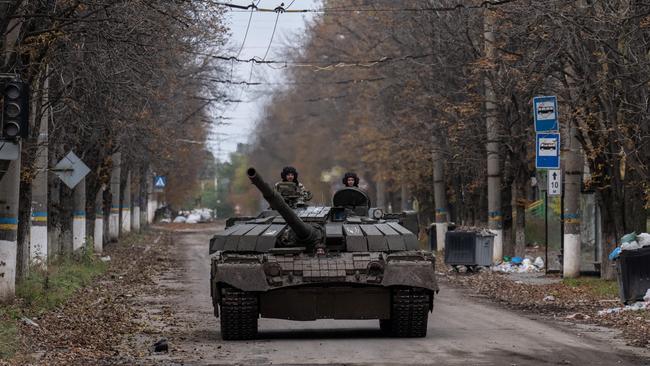
The now world-famous riposte by a Ukrainian soldier on Snake Island in the Black Sea ("Russian warship, go f--- yourself") is entirely in the nation’s tradition. It is hardly surprising that a comic actor should find his way to the presidency with almost three quarters of the vote.
Volodymyr Zelensky was already famous when he starred in the hit TV series Servant of the People in which an everyman history teacher becomes president. He quickly discovers that the president keeps a “sun-tan architect” on his staff, and that there is a huge ministry for the “reduction of government ministries”. The fictional president turns out to be quick with what Ukrainians call the “caustic word”. Dismissing a corrupt official he says: “If he’s honest, he’s a fool. If he’s smart, he’s a thief.” The real-life Zelensky is no less laconic, telling western leaders who had offered him safe passage to exile “I need ammunition, not a ride”.
Britain has its own history of black humour in dark times. As I write I am listening to a majestic compilation of the BBC’s recordings over the past century. Disappointingly, one wartime ditty familiar to schoolchildren well into this century didn’t make the cut: “Hitler has only got one ball/ Goring has two but very small/ Himmler is rather sim’lar/ But poor old Goebbels has no balls at all.”
Laughing at the enemy is easy. Attacking racists, bigots and Conservatives is the staple of today’s stand-up. Yet we Brits also have a tradition of laughing at ourselves and our own eccentricities; unlike others, we tend to mock people with whom we disagree rather than shooting or locking them up. But increasingly, honest self-examination is being abandoned in favour of “safe spaces”. Awkward truths about disagreements in our society are fudged or suppressed, not debated.
The famous Monty Python Four Yorkshiremen satire on class attitudes ("I had to get up half an hour before I went to bed, drink a cup of sulphuric acid, work 29 hours a day … ”) might just about survive the censoriousness of today, but The Lumberjack Song ("I like to press wild flowers/ I put on women’s clothing/ And hang around in bars"), would probably induce a heart attack at today’s BBC.
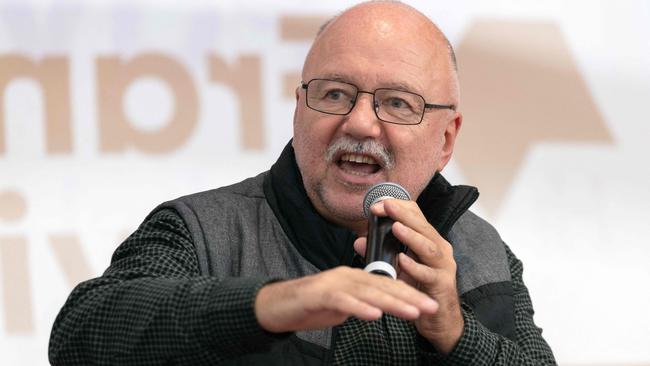
There are, of course, good reasons to be cautious about comedy in politics. After the music hall turn at No.10 by the former Have I Got News For You host Boris Johnson, nobody is going to send in the clowns again. And my colleague Janice Turner’s evisceration of the bid by Eddie Izzard to bring his stiletto heels to Sheffield reminds us that even a gifted comic may not grasp some realities. No intelligent female adult takes kindly to being told that a dab of lipstick and heels is all there is to being a woman.
All that said, there has to be a case for the vivid speech in public life. In his nightly address to the Ukrainian people Zelensky does not mince his words, reminding us that leadership can’t be copied out of the pages of airport management books. But we Brits have fallen out of love with bluntness. Establishment terror of upsetting the wrong pressure group, or more frequently of upsetting the right person, leaves our politicians mouthing platitudes.
The Ukrainians are showing us that sometimes offence is the best possible response to repression. In democracies we need to guard the freedom to say it as we see it – sometimes in ways that will seem hurtful. The precious difference between us and Putin’s Russia is that people get to answer back in whatever language they like.
– The Times



